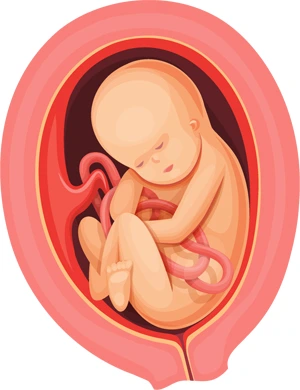In the eighth month of pregnancy, the baby is getting ready for birth, and the mother may feel a mix of excitement and anticipation. The baby’s organs are fully developed, and they are gaining weight rapidly. The mother might experience increased discomfort as the baby occupies more space, leading to possible difficulty breathing and sleeping. The pregnant mother needs to uphold regular check-ups with her healthcare provider and be attentive to any signs of labor approaching. Staying physically active, practicing relaxation techniques, and preparing for the upcoming delivery are vital aspects of this stage.
Table of Contents
ToggleWhat are the common symptoms during the 8th month of pregnancy?
During the 8th month of pregnancy, you may experience various symptoms as your body continues to prepare for childbirth. Some common symptoms during this time include:
- Shortness of breath due to the growing uterus putting pressure on your diaphragm
- Fatigue as your belly grows bigger, making it tiring to go about your day and sleep comfortably at night
- Braxton Hicks contractions, which are practice contractions that may become more noticeable during this time
- Dizziness, which can be managed by taking your time standing up and eating frequently to maintain blood sugar levels
- Increased urination due to the pressure from your growing uterus
- Heartburn and constipation
- Varicose veins and hemorrhoids due to the increased pressure on your blood vessels
What are the inside and outside changes in the 8th month of pregnancy?

Baby’s Development in the 8th month
In the eighth month of pregnancy, the baby’s development continues at a rapid pace as they prepare for life outside the womb. At this stage, the baby’s organs are nearly fully developed, and they are gaining more fat to regulate body temperature. The baby’s senses, including hearing and touch, are becoming more refined. Mothers may notice a decrease in fetal movements due to limited space in the womb, but the kicks and stretches may still be felt. Expectant mothers must focus on their well-being, including a nutritious diet, proper hydration, and adequate rest. Regular prenatal check-ups become even more important as the due date approaches to ensure a healthy delivery.
Changes to the Body
In the eighth month of pregnancy, the body undergoes significant changes as it prepares for the final stretch before childbirth. The baby bump continues to expand, and mothers may experience increased pressure on the bladder, leading to more frequent urination. Backaches and discomfort in the pelvic area may intensify as the baby descends into the pelvis in preparation for delivery. Swelling in the ankles and feet can persist, and some women may notice changes in their skin, such as darkening or the appearance of stretch marks. Adequate rest, maintaining good posture, and staying hydrated are crucial during this period. Regular prenatal check-ups remain essential for monitoring both maternal and fetal health as the due date approaches.
What is the quick list on the 8th month of pregnancy?
In the eighth month of pregnancy, here’s a brief list of things to consider:
- Keep up with regular doctor visits to monitor the baby’s health and development
- Discuss the baby’s position with your healthcare provider
- Engage in pelvic exercises to prepare your body for labor and delivery
- Pack your hospital bag with essentials for both you and the baby
- Finalize your birth plan, detailing your preferences for labor, delivery, and postpartum care
- Attend childbirth classes to gain knowledge about the birthing process and learn helpful techniques
- Pay attention to your baby’s movements, and inform your doctor if you notice any significant changes
- Start nesting by preparing the baby’s nursery and organizing necessary baby items at home
What are some things to avoid during the 8th month of pregnancy?
During the eighth month of pregnancy, it’s important to be mindful of certain things. Here’s a list of things to avoid:
- Refrain from lifting heavy objects
- Avoid engaging in strenuous physical activities
- Limit your caffeine intake
- Steer clear of raw seafood and undercooked meats
- Minimize the consumption of high-mercury fish
- Completely avoid alcohol and tobacco
- Don’t overexert yourself, especially in hot weather
- Ensure regular and nutritious meals to provide essential nutrients for both you and the baby
- Avoid saunas and hot tubs
- Consult with your healthcare provider before taking any medications
Last Updated on January 14, 2024
Written By
With a solid foundation in family dynamics, child development, and a knack for assessing products, our content is built on a strong grasp of our topics. We use trustworthy sources, seek advice from experts, and stay current with the latest happenings in our fields. We always give credit to our sources, reveal any possible conflicts of interest, and deliver info in a truthful and unbiased way. Follow us on Facebook or join our Facebook Group.
Start your journey to confident parenting
Join over 2,000+ parents who receive free practical advice and tips from Joyful PH. Unsubscribe anytime.
You may also like
Third Trimester Pregnancy (28-40 Weeks)
The third trimester of pregnancy, spanning from 28 to 40 weeks, marks the final…
Second Trimester Pregnancy (14-27 Weeks)
The second trimester of pregnancy, spanning from 14 to 27 weeks, is often…
First Trimester Pregnancy (0-13 Weeks)
During the first trimester of pregnancy, spanning from 0 to 13 weeks,…
9 Months Pregnancy
In the ninth and final month of pregnancy, the journey comes to its culmination…
7 Months Pregnancy
During the seventh month of pregnancy, significant milestones occur. The baby's…
6 Months Pregnancy
In the sixth month of pregnancy, significant developments continue as the baby…







